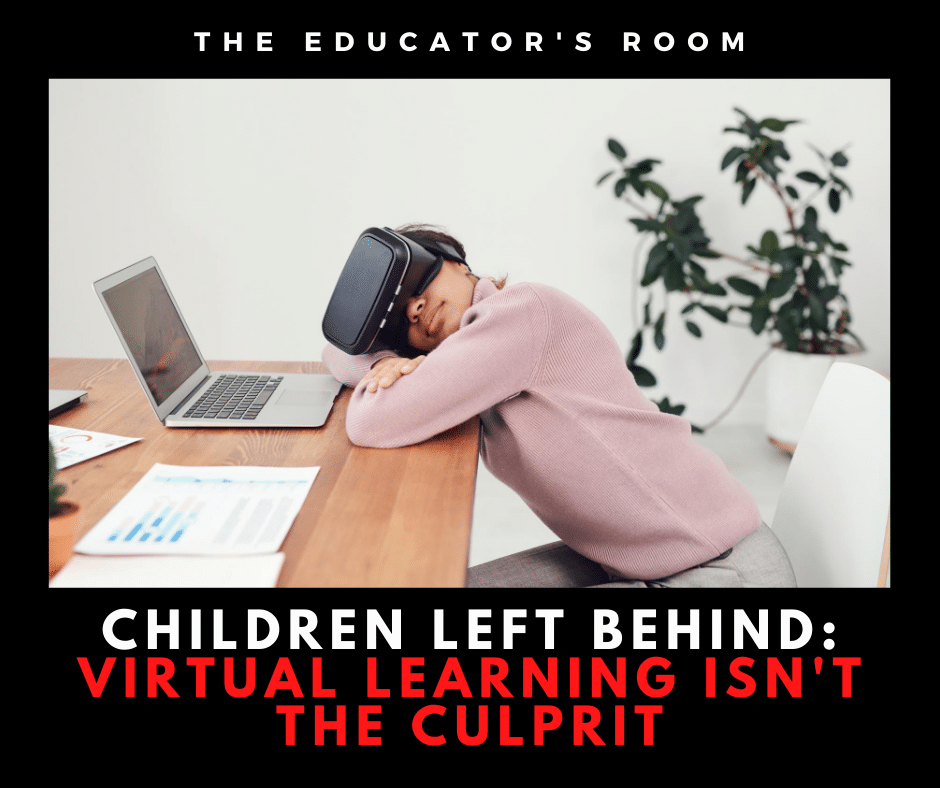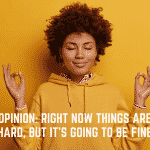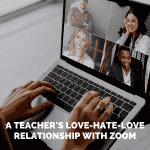Every day there is news about a district extending their remote learning, a company keeping their workers at home for another few months, and more calls for life to start going back to normal despite the bleak situation we find ourselves in. It is understandable to miss “normal” – going shopping could hardly be considered a leisure activity these days, travel is still heavily restricted for many, and there is something enjoyable about sitting in a bustling restaurant to have a carefree meal. However, we also know how important it is for us to stay home, keep our distance, and take extra precautions like wearing masks. If you still question those safety measures, look at states like Arizona, Florida, and Texas where many cities opened too soon.
Despite the fact that we have to adjust to a new normal, it is important to remember this is temporary. Temporary doesn’t mean this all blows over in a couple of months, but even if it takes a full year and a half for us to get a handle on the virus and return to our “normal,” it is a drop in the bucket in the grand scheme of things. Lives will be saved and with time we will learn more about this virus to better protect ourselves and treat those who are infected. For teachers, this has been especially difficult because our choices leave us with a double-edged sword: return to school in person so we can teach as normal but risk large outbreaks that could lead to death, use multiple models which ultimately still expose our teachers and spread them too thin as they juggle various methods of delivery, or use a virtual model which won’t be quite as effective (much to parental dismay) but will undeniably keep everyone safer.
The thing is, virtual learning should be the obvious choice.
Students will still learn and everyone will be safer, but one of the counterarguments I hear over and over again is that virtual learning is completely ineffective based on everyone’s experience in the spring. Never mind the fact that online schools have existed for years in many states, or that teachers were thrown into virtual teaching in the spring without any training or resources, or that many districts and schools have worked hard all summer to close equity gaps so all students have internet and a device to work on. While I do not dispute that for many students, virtual learning may lead to slower progress or more academic challenges, I also think this mindset is not productive. Whether we like it or not, this pandemic is happening and we need to take precautions. Also, we need to be able to plan. I cannot teach effectively if every week I am waiting to find out if we will go back in person the coming Monday, just like parents that are currently being permitted to work from home can’t plan if their employer suddenly requires everyone to start reporting into the office by the end of the week. It’s time to accept reality and allow our communities to plan for a very different year.
I also find the notion that virtual learning is going to be so poor and ineffective that we should all risk our lives to return to work to be insulting. My job as a teacher is to educate my students, and that is exactly what I will do whether I am in the classroom or in front of a camera. And as I said before, I know there will be plenty of examples of students who do fall a bit behind or don’t do well with the virtual model – but let’s consider the reality that these situations happen year after year when we are in person. There are plenty of students who do not do well in person, in a large school, or without mental health or other resources on campus, yet many of them suffer throughout their education due to the lack of options and funding. Additionally, there are plenty of examples of education initiatives failing students that have yet to be demonized as virtual learning has.
[bctt tweet=”My job as a teacher is to educate my students, and that is exactly what I will do whether I am in the classroom or in front of a camera.” username=””]
There are countless examples of failed education initiatives that hurt students’ progress on national, state, district, and local levels. We have standards, curriculum, and programs that are not shown to be effective by data being used in classrooms across the country. We have seen huge amounts of money being put toward shiny new ideas that end up making no difference or hurting our students. Our country’s education system is still confined by No Child Left Behind, which has actually left far more children behind and turned core subject classes into nothing more than standardized test prep. We have other concerns like lack of funding for counseling and other services, ineffective teacher training, overcrowded schools, lowered teacher pay and respect, and so much more that deeply impact how much academic progress students will make. Lastly, school choice and vouchers have pulled critical money from public education, which is only going to get worse as schools battle it out with reopening plans and showcasing the Learning Management Systems they’ve spent hundreds of thousands of dollars on.
Students are passed to the next grade and fall through the cracks constantly in our education system. But you know who works their tail off to make sure they are successful? Teachers! Our educators do amazing things and catch kids up year after year. Students who are in inner-city, Title I, underfunded, or alternative schools are frequently grade-levels behind in schools with little funding to make a difference for them. It’s the teachers who against all odds, find a way to reach their various students, and work miracles to help them academically. They catch up a room full of academically disadvantaged students or progress them multiple grades in one year – and this happens all over the country. Their work doing this is rarely acknowledged or celebrated unless they have a movie like the Ron Clark Story or Freedom Writers. Those movies make the public think that those are just very special teachers, and the rest aren’t making those kinds of leaps for their students. But these types of teachers are in every corner of our communities, from the inner city to rural, from poverty-stricken to resource-deprived. This is our job, and we have always been doing it.
[bctt tweet=”This pandemic is going to change the way we do things – but most of it will be temporary.” username=””]
This pandemic is going to change the way we do things – but most of it will be temporary. Some students will thrive online while others will need extra support and motivation. We are all in the same boat: employers will know that new graduates had a different type of senior year, college admissions will know that applications may look a little offbeat next year, and teachers know that they will have their work cut out for them when they go in person. And they will work miracles anyway.






